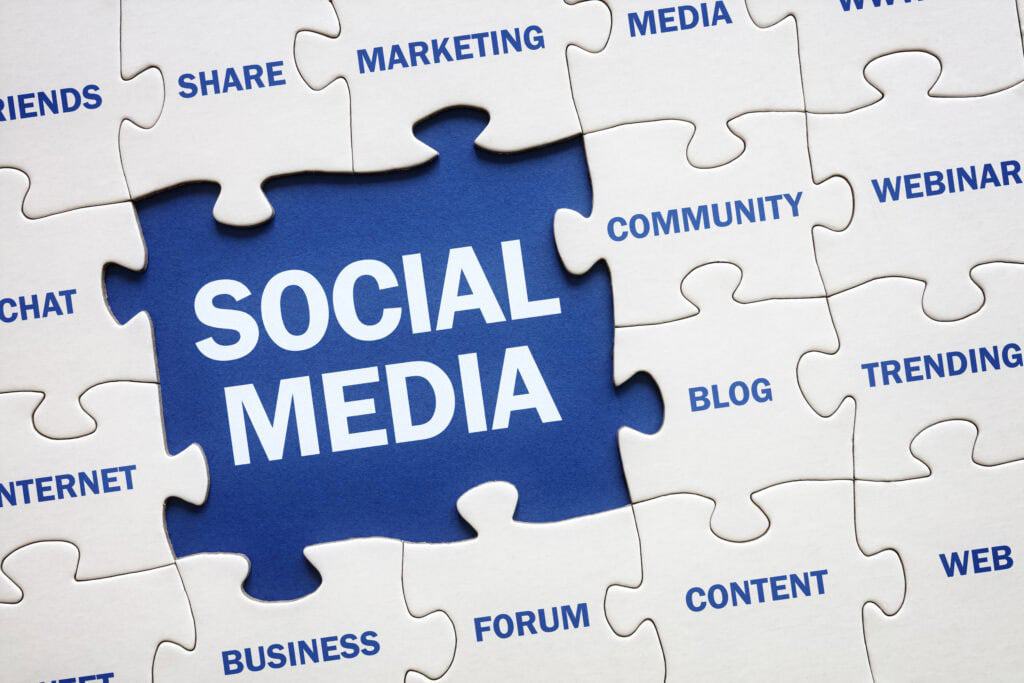Organic vs paid social media is a fundamental comparison for anyone looking to build an effective social media strategy. While organic social media focuses on creating posts that engage followers without ad spend, paid social media relies on budgeted advertising to boost visibility, target specific audiences, and drive faster results. Both methods offer unique advantages and play essential roles in reaching marketing goals. In this article, we’ll explore the key differences between organic and paid social media, helping you understand when and how to use each approach for maximum impact.
Key Takeaways
- Understanding Different Approaches: Organic social media focuses on building genuine relationships and engaging with audiences through authentic content, while paid social media leverages advertising to achieve immediate visibility and reach targeted demographics.
- Unique Benefits: Organic social media fosters long-term engagement, enhances brand loyalty, and improves credibility, whereas paid social media offers quick results, precise targeting, and the ability to measure ROI effectively.
- Key Differences: The main distinctions between organic and paid social media include their reach, engagement, cost-effectiveness, and the time required to see results, highlighting the importance of choosing the right approach based on specific marketing goals.
- Strategic Integration: A successful social media strategy often combines both organic and paid efforts, allowing brands to maximize their online presence and leverage the strengths of each approach for better overall results.
What Is Organic Social Media?
Organic social media refers to any content that is shared on social media platforms without financial promotion. These posts show up in the feeds of your followers and potentially in the feeds of their connections when they engage with your content. However, the reach of organic posts largely depends on how well the content performs based on the platform’s algorithm, which determines what content is shown to users based on their interactions and preferences.
Organic social media strategies are built on creating valuable, engaging content that resonates with your audience. This can include a variety of post types such as photos, videos, infographics, blog shares, and more. The ultimate goal of organic social media is to nurture a loyal, engaged community over time, enhancing brand awareness and trust.
Common Types of Organic Social Media Content:
- Regular Updates: Sharing company news, product launches, or general industry insights.
- Behind-the-Scenes Content: Offering followers a sneak peek into the inner workings of your business, creating a sense of authenticity.
- User-Generated Content: Sharing content created by your followers, such as reviews, testimonials, or photos of them using your product.
- Engagement Posts: Posts designed to encourage comments and conversations, such as questions, polls, and challenges.
- Educational Content: Sharing blog posts, infographics, or tutorials that provide valuable information to your audience.
Benefits of Organic Social Media
1. Cost-Effective
One of the most obvious advantages of organic social media is that it’s free. Posting content on social platforms doesn’t cost anything, making it an accessible option for businesses with limited marketing budgets. While organic social media does require time and effort to manage, it doesn’t involve any direct ad spend, making it a cost-effective way to engage with your audience.
2. Builds Trust and Brand Loyalty
Organic social media allows you to build meaningful relationships with your audience over time. By consistently sharing valuable, authentic content, businesses can cultivate trust with their followers, which is essential for building long-term brand loyalty. Organic engagement often feels more genuine, as followers interact with your content because they’re truly interested, not because it’s being promoted.
3. Showcases Brand Personality
Through organic posts, businesses have the opportunity to showcase their brand personality and values. This can help humanize your brand and make it more relatable. Whether it’s behind-the-scenes content, customer stories, or interactive Q&A sessions, organic content allows you to communicate with your audience in a more personal and less sales-driven way.
4. Fosters Community Engagement
The long-term engagement that comes with organic social media helps foster a strong sense of community. People who engage with your brand organically are often more likely to stick around and become brand advocates. Over time, this engagement can snowball, helping to grow your brand’s visibility through word of mouth and shares.
5. SEO Benefits
Organic social media can also have a positive impact on your website’s SEO (Search Engine Optimization). Regularly sharing content and links on social platforms increases the likelihood of backlinks to your site, driving more traffic and enhancing your search engine rankings.
What Is Paid Social Media?
Paid social media refers to any form of social media marketing where businesses pay to have their content or ads placed in front of specific users. Platforms like Facebook, Instagram, LinkedIn, and Twitter offer businesses the ability to run highly targeted ads, reaching specific demographics, interests, or behaviors. Paid social media is often used to drive immediate results, such as increased website traffic, lead generation, or product sales.
Paid social media campaigns can take a variety of forms, including:
- Sponsored Posts: These are standard posts that businesses pay to promote to a broader or more targeted audience.
- Display Ads: These ads appear on the side or in between content on social media platforms.
- Video Ads: Short video ads that appear in users’ news feeds or stories.
- Carousel Ads: Interactive ads that allow users to scroll through multiple images or products in one ad.
- Lead Generation Ads: Ads specifically designed to collect user information, like email addresses, directly through the platform.
Benefits of Paid Social Media
1. Immediate Results
One of the most significant advantages of paid social media is its ability to deliver immediate results. Unlike organic social media, which requires time to build an audience and engagement, paid ads can instantly boost your visibility and drive traffic to your website. Paid social media is especially useful for product launches, promotions, or any time-sensitive campaigns.
2. Highly Targeted
Paid social media allows for hyper-targeted marketing. You can define your audience based on a wide range of parameters, such as age, location, gender, interests, behavior, and even life events. This level of precision ensures that your ads are shown to people who are most likely to engage with your brand, increasing the chances of conversions and reducing wasted ad spend.
3. Scalable
Paid social media campaigns can be easily scaled depending on your budget and goals. Whether you want to run a small local campaign or a large, global campaign, you can adjust the scope of your ads to fit your needs. As your business grows, you can increase your ad spend to reach an even larger audience.
4. Advanced Analytics
Most social media platforms provide detailed analytics and insights into the performance of paid campaigns. You can track metrics like impressions, clicks, conversions, cost-per-click (CPC), and return on ad spend (ROAS). This data allows you to refine your campaigns and optimize future ads for better performance.
5. Increased Brand Exposure
Paid social media allows you to reach a much larger audience than organic posts alone. With the right targeting, you can expose your brand to people who might not have otherwise encountered your content, increasing brand awareness and expanding your customer base.
Organic vs. Paid Social Media: Key Differences
| Aspect | Organic Social Media | Paid Social Media |
|---|---|---|
| Cost | Free, with no advertising spend | Requires budget for ad spend |
| Reach | Limited to existing followers and their networks | Can reach a broader audience beyond existing followers |
| Engagement | Builds authentic relationships and trust | Generates immediate but sometimes less authentic engagement |
| Time to Results | Slower; requires consistent effort to build momentum | Faster; can achieve quick results with the right investment |
| Targeting | General audience; relies on organic reach | Highly targeted; can specify demographics and interests |
| Longevity | Content can continue to engage over time | Ads are temporary; require ongoing investment to maintain visibility |
When comparing organic vs paid social media marketing, it’s essential to recognize the differences in their reach, cost, engagement, and overall goals. Both have distinct advantages, and the best approach often involves using both in tandem.
1. Reach
- Organic Social Media: Organic posts are primarily seen by your existing followers and people within their network who interact with your content. While it’s possible for organic posts to go viral and reach a broader audience, they are limited by the algorithms of each platform, which tend to prioritize personal connections over brand content.
- Paid Social Media: Paid social media gives you the power to reach a much larger and more targeted audience. You’re not restricted to your existing followers, and you can create ads tailored to specific demographics and interests, allowing you to reach users who may not have heard of your brand before.
2. Cost
- Organic Social Media: Organic posts are free to publish, but they do require an investment of time and effort to produce high-quality content consistently. While it doesn’t involve direct financial costs, it can still be resource-intensive to manage an active organic presence.
- Paid Social Media: Paid social media requires an upfront financial investment. However, the cost can be tailored to your budget. Small businesses can start with low ad spend, and larger companies can scale their campaigns with bigger budgets for broader reach.
3. Engagement
- Organic Social Media: Engagement on organic posts tends to be more authentic because followers are interacting with your content based on their genuine interest. Building engagement organically takes time but often results in stronger relationships and customer loyalty.
- Paid Social Media: Paid social media can lead to faster engagement, but it may not always be as genuine. Users may click on ads out of curiosity or because they’re targeted, but they may not have the same level of connection as those who engage organically.
4. Lifespan
- Organic Social Media: Organic posts typically have a shorter lifespan due to platform algorithms. Unless your followers are actively engaging with your content, your posts can quickly disappear from their feeds.
- Paid Social Media: Paid ads can run for as long as your budget allows, giving them a longer lifespan and more visibility. You can keep paid ads running continuously to maintain a presence in front of your audience.
5. Results
- Organic Social Media: Organic social media is a long-term strategy that focuses on building relationships over time. It’s not designed to deliver immediate results, but rather to foster ongoing engagement, trust, and loyalty.
- Paid Social Media: Paid social media is designed for short-term, immediate results. It’s ideal for businesses looking to drive traffic quickly, generate leads
Explore Your Options at Dig Designs
Understanding the distinctions between organic vs paid social media marketing is essential for crafting a successful strategy. While organic social media offers long-term benefits and fosters genuine relationships, paid social media provides immediate visibility and targeted reach.
At Dig Designs, we specialize in creating integrated marketing strategies that encompass both organic and paid social media efforts. Our services include social media marketing, SEO, outreach marketing, UX and web development, and website management. By leveraging our expertise, you can enhance your brand’s online presence, ensuring that you not only attract new customers but also cultivate lasting relationships with your audience.
Let us help you navigate the complexities of social media marketing and unlock the full potential of your brand. Together, we can develop a comprehensive strategy tailored to your unique needs, combining the strengths of both organic and paid approaches for maximum impact.
Frequently Asked Questions
How does the engagement differ between organic and paid posts?
Engagement levels can vary significantly between organic and paid posts. Organic engagement typically comes from followers who are genuinely interested in your content, leading to more authentic interactions such as comments, shares, and likes. These interactions are often viewed as more valuable because they stem from a genuine connection with your brand. On the other hand, paid posts can reach a broader audience, including those who may not already follow you. While paid ads can generate clicks and impressions quickly, they may not always foster the same level of authentic engagement as organic posts.
Is organic reach declining on social media?
Yes, many businesses have noticed a decline in organic reach on social media platforms. This decline can be attributed to changes in platform algorithms that prioritize personal connections and content from friends and family over brand content. As social media platforms continue to evolve, it becomes increasingly challenging for brands to gain visibility through organic posts alone. However, engaging content that resonates with your audience can still generate organic reach, even amidst declining trends.
Can organic and paid social media work together?
Absolutely! In fact, combining organic and paid social media strategies can lead to even greater success. By leveraging insights from your organic posts, you can inform your paid ad campaigns to ensure they resonate with your target audience. Additionally, using paid social media to amplify your top-performing organic content can drive more traffic and engagement, creating a synergistic effect. This integrated approach allows you to maximize your reach, drive immediate results, and build lasting relationships with your audience over time.




